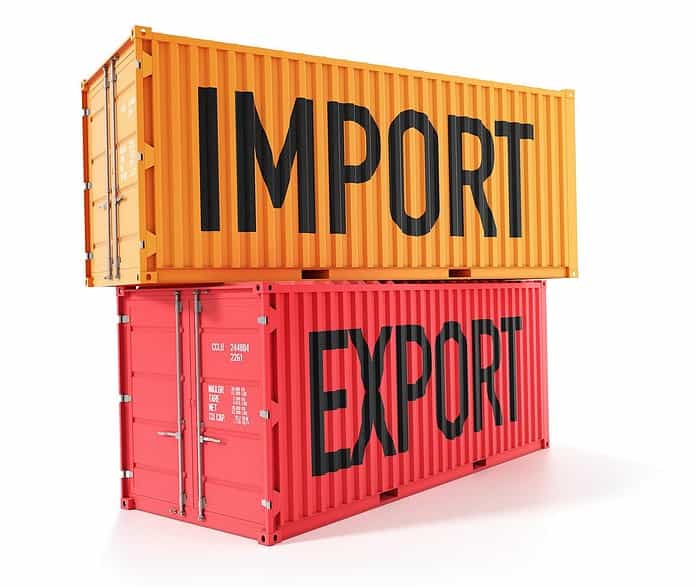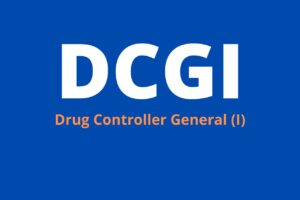Last Updated on October 6, 2024 by The Health Master
Track and Trace System in Drug Exports
Drug Exports: The Indian government has announced an extension for the implementation of the track and trace system for exports of drug formulations.
The deadline has been moved to February 1, 2024, and this extension applies to both small-scale industry (SSI) and non-SSI-manufactured drugs.
The decision comes as part of the government’s efforts to enhance the safety and authenticity of pharmaceutical products on the international market.
Extension of the Track and Trace System in drug exports
The Directorate General of Foreign Trade (DGFT) issued a public notice stating that the date for implementing the track and trace system for drug exports has been extended.
The key points of this extension are as follows:
- New Deadline: The new deadline for implementing the track and trace system is February 1, 2024.
- Inclusion of SSI and Non-SSI Drugs: The extension applies to both SSI and non-SSI-manufactured drugs.
- Previous Extensions: This is not the first time the dates have been extended; earlier extensions were also provided.
Importance of Track and Trace System:
The track and trace system requires manufacturers or exporters of drug formulations to print barcodes according to global standards at various packaging levels, including primary, secondary, and tertiary.
The system aims to facilitate the tracking and tracing of pharmaceutical products, offering the following benefits:
Origin Verification:
The barcode system enables efficient tracking and tracing of the drugs’ origin, reducing the chances of genuine medicines being mistaken for spurious, substandard, or counterfeit products.
Enhanced Safety:
By implementing the track and trace system for drug exports, the government aims to enhance the safety and authenticity of pharmaceutical products on the global market.
Minimizing Risks:
The use of barcodes reduces the risks associated with drug counterfeiting and diversion, ensuring that patients receive genuine and safe medicines.
Conclusion:
The extension of the track and trace system for exports of drug formulations until February 2024 reflects the government’s commitment to ensuring the quality and safety of pharmaceutical products in the international market.
By mandating the use of barcodes at various packaging levels, the government aims to improve drug traceability, minimize the risks of counterfeit medicines, and protect patient safety.
Manufacturers and exporters must comply with the new deadline to ensure seamless and secure exports of pharmaceutical products.
FAQs on drug exports from India:
1. What is drug exports?
Drug exports refers to the international sale and shipment of pharmaceutical products from one country to another for various purposes, including medical use, research, and commercial distribution.
2. Can all drugs be exported without restrictions?
No, not all drugs can be exported freely. Some drugs may be subject to export restrictions or require special permits due to their nature, potential for abuse, or international agreements.
3. Are there specific labeling requirements for exported drugs?
Yes, exported drugs usually need to have clear and compliant labeling that meets the requirements of both the exporting and importing countries. This includes information on ingredients, dosage, and safety warnings.
4. What documents are needed for drug export?
Commonly required export documents include a Certificate of Analysis, a Certificate of Origin, a Bill of Lading, a Packing List, and the necessary licenses or permits.
5. How are drug quality and safety ensured during export?
Quality and safety are maintained through adherence to Good Manufacturing Practices (GMP) and compliance with international quality standards. Regular inspections and audits are conducted to ensure product integrity.
6. Can pharmaceutical companies export experimental drugs for clinical trials?
Yes, pharmaceutical companies can export experimental drugs for clinical trials, but this process is highly regulated and requires approval from regulatory authorities.
7. Are there export incentives for drug manufacturers?
Some countries may offer export incentives, tax benefits, or subsidies to pharmaceutical companies to promote drug exports and boost their competitiveness in the global market.
8. What are the key regulations governing drug exports from India?
Drug exports from India are primarily regulated by the Central Drugs Standard Control Organization (CDSCO) and the Directorate General of Foreign Trade (DGFT).
9. Are there specific licensing requirements for exporting pharmaceuticals from India?
Yes, pharmaceutical exporters in India typically need to obtain an Import-Export Code (IEC) from the DGFT. Additionally, specific licenses and permits may be required for certain types of drugs or destinations.
10. Can Indian pharmaceutical companies export to the United States and the European Union (EU)?
Yes, Indian pharmaceutical companies can export to the U.S. and EU markets. However, they must comply with stringent regulatory requirements, including approvals from the U.S. Food and Drug Administration (FDA) and the European Medicines Agency (EMA).
11. What is the role of the Export Promotion Council for Pharmaceuticals (Pharmexcil)?
Pharmexcil is an organization that promotes and facilitates pharmaceutical exports from India. It provides various services and support to Indian pharmaceutical exporters.
12. Are there tax incentives or benefits for pharmaceutical exporters in India?
India offers various export incentives and tax benefits to pharmaceutical companies to encourage drug exports. These incentives can include the Duty Drawback Scheme and the Export Promotion Capital Goods (EPCG) Scheme.
Disclaimer: This article contains information derived from ET Healthworld. Our team utilized an AI language model, to rewrite and present the news / article in a unique format.
Stakeholders urge Govt to recall New Drugs, Cosmetics & Medical Devices Bill
Gujarat FDCA takes stringent actions against Non-Compliant Pharma Companies
Legal Metrology Division urges to ensure compliance of Rules 26 on…
Major Crackdown: Rs 2 Crore-worth counterfeit drugs seized in Kolkata
Positive Govt response awaited for New Regulation on OTC Drugs
Quality Assurance in the Pharmaceutical Industry
Drug Dept cautions consumers about 15 NSQ drugs in circulation: Karnataka
Govt prohibits Ketoprofen and Aceclofenac formulations for Animal Use
NIPER: A Comprehensive Guide to NIPER Institutes in India
Illegal Drugs worth more than Rs. 50 Lakh seized from warehouses in Agra











